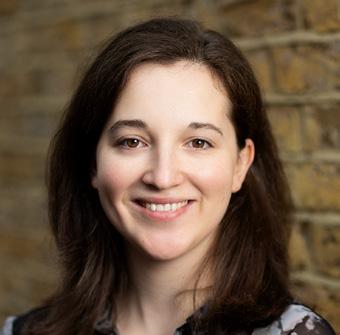
3 minute read
Make Your Case
Advice on applying for unrestricted funding by Emily Dyson-Hawkes, Deputy Director of The Institute for Voluntary Action Research (IVAR).

Emily Dyson-Hawkes
Firstly, what do we mean by unrestricted funding? It’s a term that’s often used interchangeably with ‘core funding’, but they aren’t the same thing.
Unrestricted funding has no strings attached: it can be used for anything within your charitable objects. Core funding usually describes a grant restricted to either a specific element of overheads (like rental costs or the Director's salary) or to be used for essential running costs more broadly.
Through our research into unrestricted funding, we have found seven ways that it adds value to funded organisations:
1. Better use of expertise: It respects the experience, skills and knowledge of funded organisations, freeing them to make informed judgements about the best use of funds.
2. More flexibility and agility: It recognises that the future is unpredictable and enables funded organisations to manage well in uncertainty, responding quickly to changing circumstances and needs.
3. More effective work: It maximises the chances of delivering the greatest positive impact for the communities and causes that we all care about.
4. Better relationships: It helps level the power relationship and opens the way for greater mutual honesty between organisations and their funders.
5. Building confidence: A more supportive, less transactional funding relationship significantly boosts funded organisations.
6. Lighter processes: It reduces bureaucracy for all parties.
7. Reduced organisational risk and greater resilience:
Unrestricted funding gives organisations much greater scope to cover all essential costs, deal with challenges quickly and effectively, and experiment.
Over 100 Open and Trusting Grantmakers committed to sharing what kind of funding they offer and to being as flexible as they can. You can find out who they are here: ivar.org.uk/flexible-funders.
When you're applying for unrestricted funding, here are some questions worth asking yourself:
How would you use unrestricted funding? It can provide the opportunity and resources to plan, test new things, improve services or provide security. Some organisations use their funding to establish and strengthen back-office functions like finance, IT and human resources.
Are you making it easy for funders to say yes? Be clear about the difference this kind of funding would make to your organisation. What will it mean for your beneficiaries? Will it create a step-change in how you deliver your services?
You can read more about the mechanics of how it all works from a funder point of view in The Holy Grail of Funding (link below).
As part of our research, Philippa Charles from the Garfield Weston Foundation shared with us: “If an organisation's core is secure, that will create opportunities for them to experiment, take their own risks, form new relationships, and continue to improve.”
Further information
www.ivar.org.uk
Read IVAR’s free guide The Holy Grail of Funding: ivar.org.uk/publication/the-holy-grail-of-funding
Join IVAR’s community to influence funder practice: bit.ly/IVAR-register.
Cover image: Chloe Davies at Rubicon Dance, photo Dani Bower for One Dance UK.






